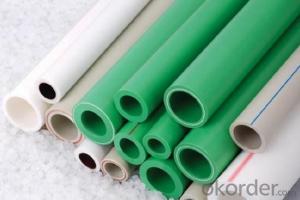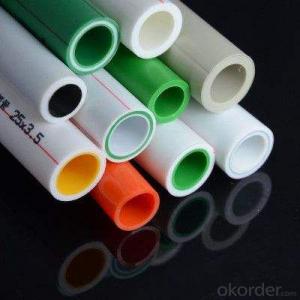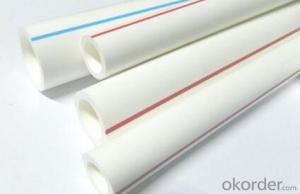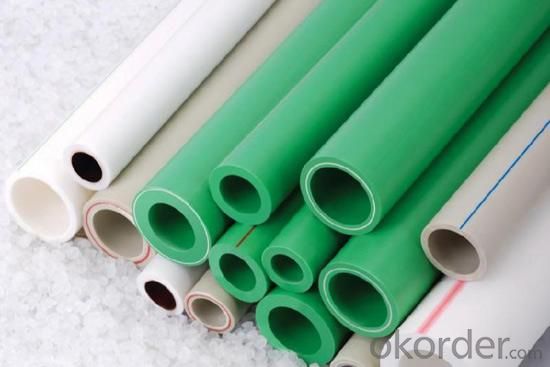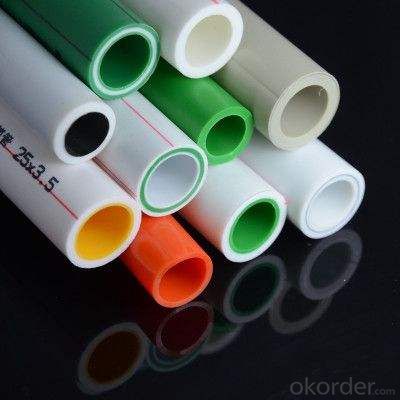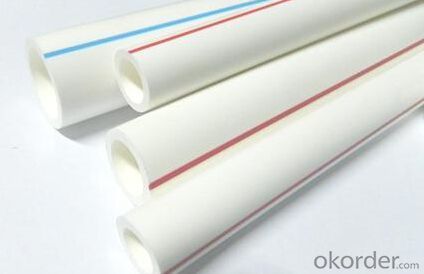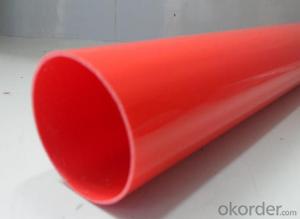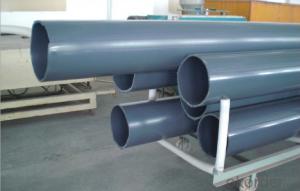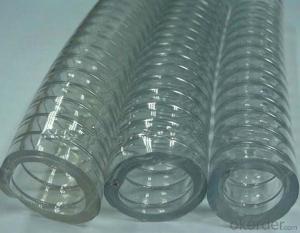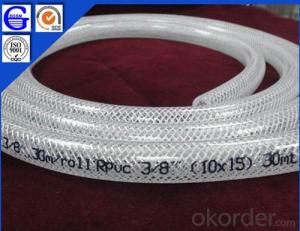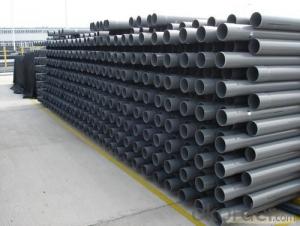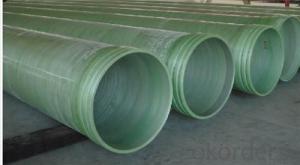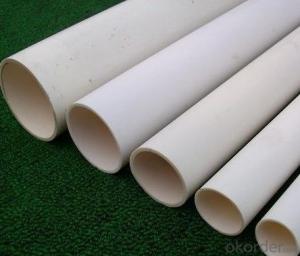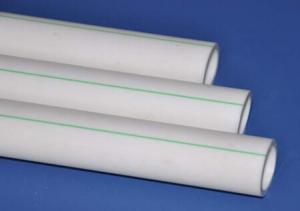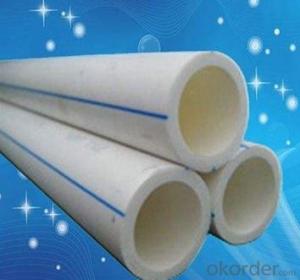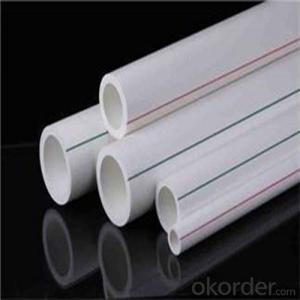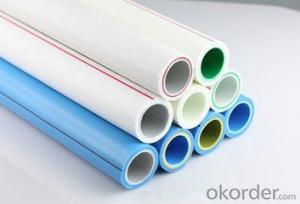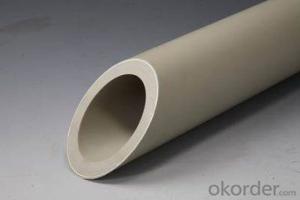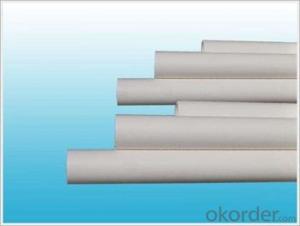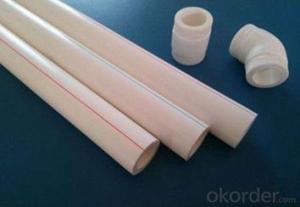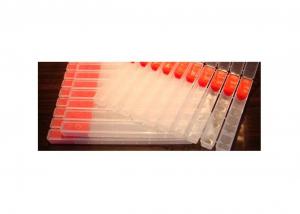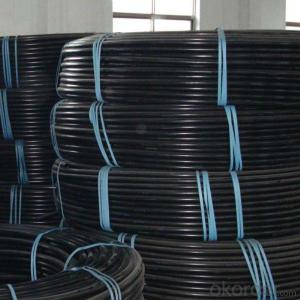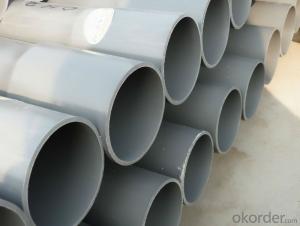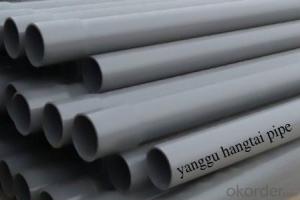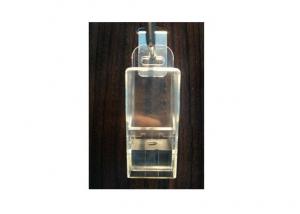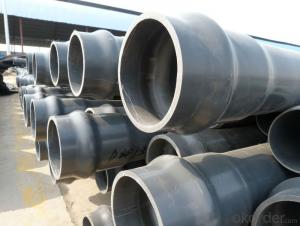Plastic Tubes - 2024 PPR Pipes for Industrial and Agricultural Fields from China
- Loading Port:
- Dalian
- Payment Terms:
- TT OR LC
- Min Order Qty:
- 1000 pc
- Supply Capability:
- 1000000 pc/month
OKorder Service Pledge
OKorder Financial Service
You Might Also Like
Product Overview
1) Cold / hot water supply facilities for public buildings
2) Food, chemical, electronic industry pipeline networks; Such as Pipeline networks for transporting all kinds of corrosive liquids
3) Drinking water production system pipeline networks; Such as Pure water and mineral water
4) Air conditioning facility pipelines
5) Compressed gas pipeline networks for industry
6) Pipeline networks for swimming pools
7) Pipeline networks for solar energy facilities
8) Agriculture and garden production transporting systems
Advantages
1)Light weight, convenient to transport and handle
2)High strength
3)less resistance
4)Corrosion resistance
5)Sound insulation
6)Easy to install
7)long lifespan
8)low cost
9)Recyclable: thereby benefiting the environment
10)OEM/ODM welcome standards
Product Description
Pressure | Size(mm) | Pressure | Size(mm) |
PN1.25MPA | 20*2.0 |
PN1.6MPA | 20*2.3 |
25*2.3 | 25*2.8 | ||
32*2.9 | 32*3.6 | ||
40*3.7 | 40*4.5 | ||
50*4.6 | 50*5.6 | ||
63*5.8 | 63*7.1 | ||
75*6.8 | 75*8.4 | ||
90*8.2 | 90*10.1 | ||
110*10.0 | 110*12.3 |
Product Show
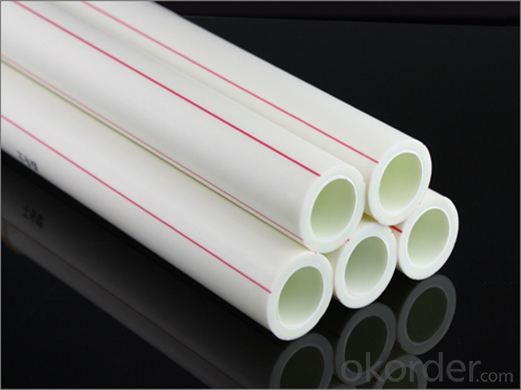
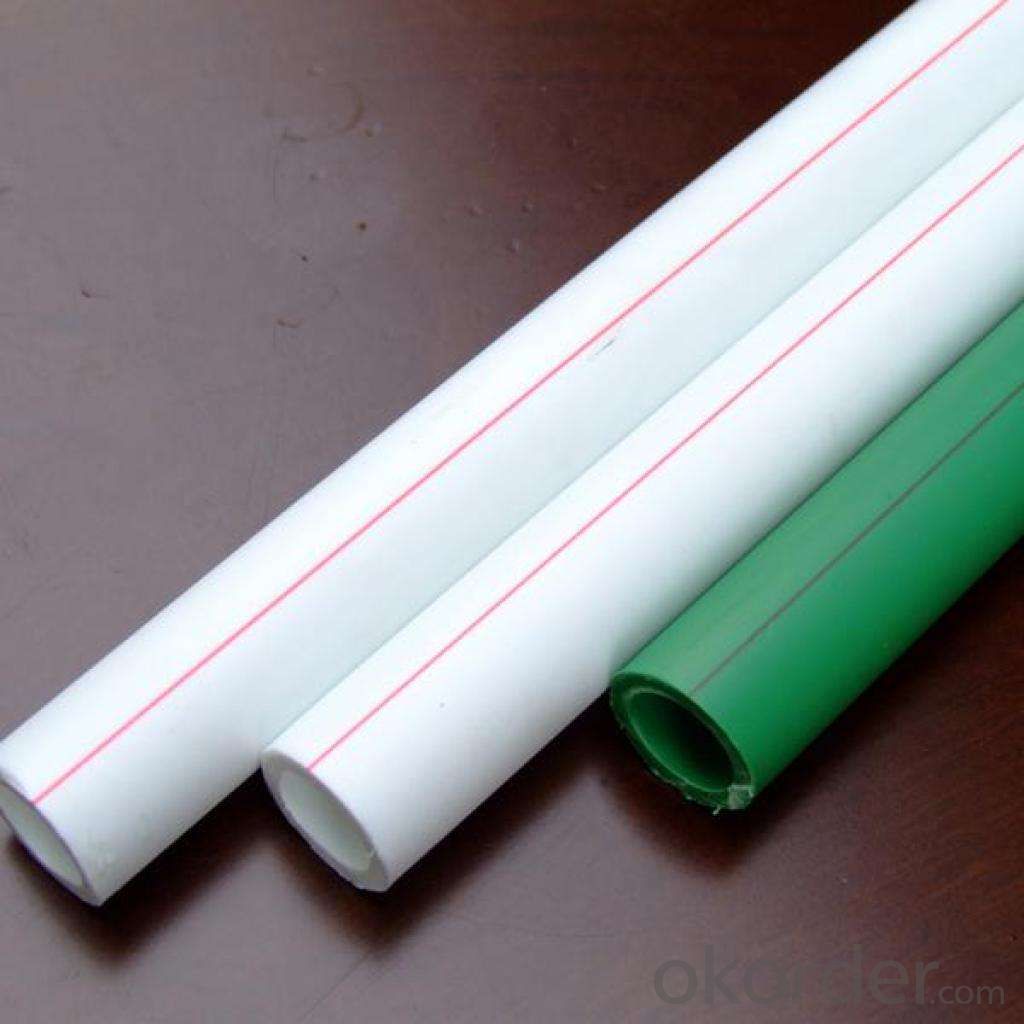
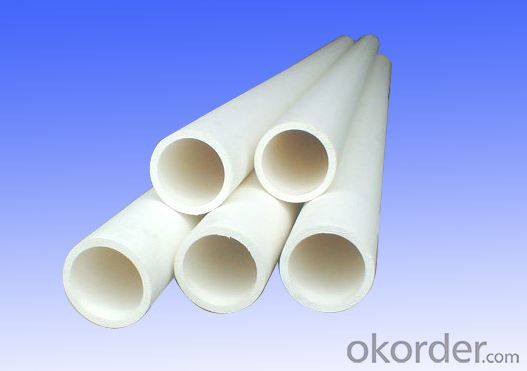
FAQ
Q1: How Can I Get A Sample?
A1: You can get samples by communicate with our export sales.
Q2: How Long Is Delivery?
A2: Delivery time will be30-45days according to order quantity.
Q3: What Is The MOQ?
A3: MOQ depends on different items.
Q4: What Is Our Normal Payments Terms?
A4: Our normal payment terms now is: T/T, L/C or western union, pay
- Q: Just curious, when there is only a bit of toothpaste left, I have to squeeze little by little from bottom up. But then after using it, I'll have to do the same thing next time around. Obviously the toothpaste has to settle down the tube. Why and how does it do that?
- The plastic material has internal stresses that retain the shape it was cast in originally. Since it is attached to a round head it tends to form a sort of flattened cone. The toothpaste moves back up the tube to fill the available space as it is a type of really thick fluid. The shape may also lead to the toothpaste moving upwards due to capillary action (similar to how water moves up a very thin straw) To combat this effect, you can buy a little squeezy thing that rolls over the tube to prevent the toothpaste from moving backwards, or you can fold/bend it over as you use it like many people do. I store mine upright on the cap so the toothpaste settles at the end I squeeze it out of. The tube also uses less counter space when you store it upright as compared to laid over on its side.
- Q: Do plastic tubes have any insulation properties?
- No, plastic tubes do not have any insulation properties.
- Q: Can you smoke hookah with just a plastic tube?
- no, you need something to put the hookah in, and you need something to light it. And you don't want to burn the plastic and breathe the fumes!
- Q: Can plastic tubes be used for cold-fill applications?
- Yes, plastic tubes can be used for cold-fill applications.
- Q: Are plastic tubes suitable for transporting hazardous materials?
- Plastic tubes are not typically suitable for transporting hazardous materials due to their potential for degradation or chemical reactions with certain substances. Instead, materials such as steel or specialized containers designed specifically for hazardous materials transport are commonly used to ensure safety and prevent any potential risks.
- Q: Should I use them or take them off. They are currently on my strings, but my two lower strings sound really bad.
- The purpose of these plastic tubes is to prevent your bridge from being damaged. As we violinist know,the violin needs constant tuning and if you are using gut strings,would react weirdly to the physical environment should it change. The plastic tubes are to prevent your bridge from being cut by the strings especially by the E string which is very thin.Normally I take off the plastic tubes on the lower 2 strings but I think its okay if you don't too. I don't think it will affect the sound though.Maybe your strings are new so they haven't really settled down yet.Different strings when placed newly create all sorts of odd sounds.I particularly hate the Dominant ones as they have that metallic edge in the sound when its just placed.
- Q: How do you measure the diameter of a plastic tube?
- To measure the diameter of a plastic tube, you can use a caliper or a ruler. Simply place the caliper jaws or the ruler across the widest point of the tube, ensuring that they are perpendicular to the axis of the tube. Take note of the measurement displayed on the caliper or the ruler, which represents the diameter of the plastic tube.
- Q: How do plastic tubes perform in extreme cold temperatures?
- Plastic tubes tend to become more brittle and may be prone to cracking or breaking in extreme cold temperatures.
- Q: I have a KN in my 2000 Grand Prix Gt has the 3.8. Well I was looking into getting either a KN for a 97 Silverado 5.7 1 ton. Do the chrome air tubes have much of a different sound than a plastic air tube? I am looking on OKorder and found cheap ones vs getting the KN. All comments and suggests will be appreciated.
- 1)why okorder
- Q: I need to bleed my brakes. A plastic tube is attached to the valve on the wheel. What is the proper size tube? It is a clear plastic hose or tube. I need the inside diameter measurements so that I can buy one at the hardware store.I use this tube to drain out the fluid. any one know offhand? Dodge Neon
- all the tube does is makes it easier to catch the brake fluid in a cup, you dont necessarily need it, but it can be nice...
Send your message to us
Plastic Tubes - 2024 PPR Pipes for Industrial and Agricultural Fields from China
- Loading Port:
- Dalian
- Payment Terms:
- TT OR LC
- Min Order Qty:
- 1000 pc
- Supply Capability:
- 1000000 pc/month
OKorder Service Pledge
OKorder Financial Service
Similar products
Hot products
Hot Searches
Related keywords
